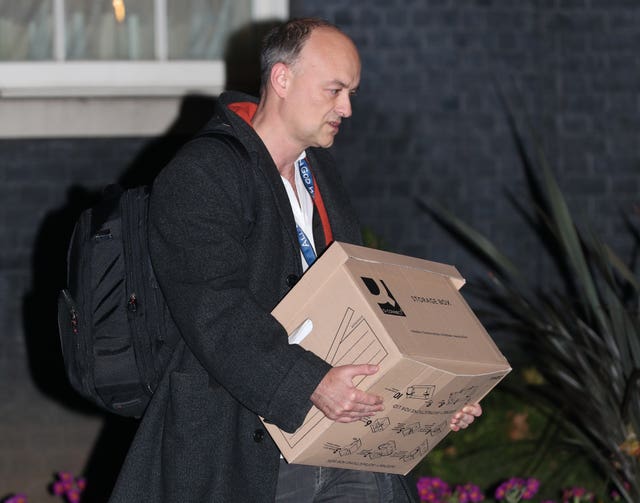Much has changed in the 12 months since the diagnosis of the first coronavirus case in the UK, including for the Prime Minister.
Gone is the figure who spoke last March of shaking hands with people in hospital, replaced with a leader who has held his country under draconian social restrictions for close to a year.
During an unprecedented year since the first positive Covid-19 case in the UK on January 31, Boris Johnson has placed England into three lockdowns, been in intensive care after contracting the virus and overseen the steepest economic recession in 300 years, all while negotiating a Brexit deal and welcoming a new son.
Mr Johnson has faced flak from his critics for his optimism in the face of a deadly pandemic and for being too slow to impose restrictions.
In July, he spoke of returning to “normality” before Christmas and called lockdowns a “nuclear deterrent” that he did not think he would have to use again.
He has since invoked lockdowns twice more, with England currently under restrictions that do not officially expire until the end of March.
But, a year on from the first case, Mr Johnson is striking a more reserved tone, telling reporters and the public in recent weeks that it is too early to speculate on lifting restrictions – although he has committed to reviewing them by mid-February.
The year has seen upheaval for Mr Johnson personally, politically and professionally.
Instead of 12 months focused on building his vision for the UK post-Brexit as envisaged, his Government has instead had to revert to dealing with an illness that has ravaged the NHS and the economy.
In a stark announcement on March 12, Mr Johnson told an anxious public: “I must level with you … many more families are going to lose loved ones before their time.”
The message was one of the grimmest that any peacetime prime minister has had to utter and it bore itself out in tragic numbers, with a sombre Prime Minister announcing this week that he was “deeply sorry” after Government figures showed more than 100,000 people in the UK had died after contracting coronavirus.
Mr Johnson revealed in April that his own battle with Covid, which saw him admitted to intensive care, could have “gone either way” and led to a Damascus moment about the state of his own health and the nation’s waistlines.
Mr Johnson has spearheaded efforts to encourage the public to lose weight, believing Britain’s obesity levels to be a key reason why the UK’s Covid death toll is one of the highest in the world.
There has also been a major shake-up in Downing Street, with key advisers and allies from the Vote Leave campaign exiting Government.
The Conservative Party leader stood by his closest adviser Dominic Cummings in May after it was reported that he possibly broke lockdown rules when he drove more than 250 miles to Durham, only to see the controversial figure depart, along with No 10 communications director Lee Cain, in November.
The appointment of press secretary Allegra Stratton brought with it talk of a premiership being reshaped and a thawing of combative relations with the media.
The virus also altered.
The November lockdown in England was designed to pave the way for families to spend five days together at Christmas but the festive plans were scrapped or scaled back after the discovery of the more infectious Kent variant of coronavirus.

The surge in cases by January, spurred on by the new variant, led Mr Johnson to clamp England into a third lockdown, with no end yet in sight for when it will be lifted.
Mr Johnson will know that coronavirus will present fresh issues in the year to come, as well.
The anti-lockdown voices on the Tory benches have grown and there is an economy versus health battle re-emerging, with businesses, particularly those in the hospitality sector, warning they cannot take much more while some scientists say they fear releasing restrictions too fast will lead to another surge in cases.
But the vaccine programme offers hope for both the country and Downing Street.
Even Mr Johnson’s most vocal critics have praised his Government’s efforts to lead on rolling out inoculations against the virus, with ministers insisting they are on target to have offered a jab to almost 14 million people in the four priority groups, which includes all those aged over 80, by mid-February.
With so many ups and downs in the year since the first confirmed positive case, Mr Johnson will be hoping that lessons will have been learnt as he seeks to lead the country into better fortunes and create a recovery legacy for which he will be remembered.





Comments: Our rules
We want our comments to be a lively and valuable part of our community - a place where readers can debate and engage with the most important local issues. The ability to comment on our stories is a privilege, not a right, however, and that privilege may be withdrawn if it is abused or misused.
Please report any comments that break our rules.
Read the rules here